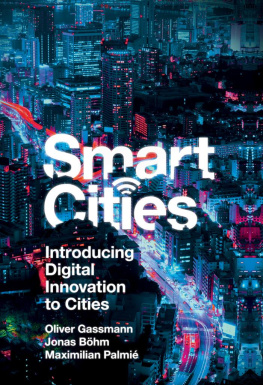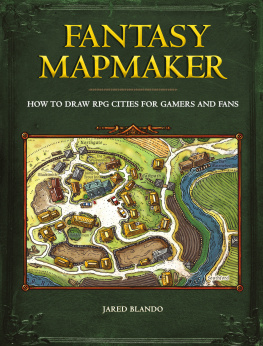F OR GOOD REASON , millions of people who have taken an Uber, shopped on Etsy, found a professionals help on Thumbtack, or booked a place to stay through Airbnb love the sharing economy. These services, and countless others like eBay, TaskRabbit, Rent the Runway, and GoFundMe have a common themethey connect people though online platforms. Often, the sharing economy enables transactions that used to be infeasible, time consuming, or cost prohibitive.
Others see the sharing economy as an enemy to be eliminated. It is true that the work done in the sharing economy does not look much like that of 1950s-era taxi drivers, artisans, repairmen, or hotel managers, but a twenty-first century economy cannot flourish under a decades-old policy framework. As technology continues to disrupt established business models, fights between innovators and special interests will only intensify.
Opponents of the sharing economy do not want to promote innovation; they want to protect themselves from change and competition. And political opponents refuse to understand that the fundamentally different businesses of the new economy require a modern regulatory model to thrive and fulfill their potentials. Instead of embracing these advances, these groups resist any change that threatens their short-term economic interests.
To fight back, it is critical to illuminate the new economys benefits and reveal the motives and tactics of those who desperately want to kill it. Change is central to economic growth, and Americans should not remain quiet while policy makers limit innovation to protect the politically powerful.
T HE T WENTY -F IRST C ENTURY E CONOMY
Before highlighting political opposition to the sharing economy, it is important to understand the recent economic developments that are behind the business models of companies like Uber and Airbnb.
Underpinning these changes is the economic concept of transaction costs. Nobel Prizewinning economist Ronald Coase explains that transaction costs are what it takes to bring together buyers and sellers, exchange information, negotiate prices, and enforce contracts.
In the past, transactions were heavily influenced by businesses. But all that has changed in todays economy because technology has put information in the hands of consumers.
As the Competitive Enterprise Institutes Iain Murray argues, the sharing economy is made possible by the substantial lowering of transaction costs resulting from recent technological advances. Peer-to-peer interaction over the Internet gives consumers and providers of goods and services the ability to quickly connect with and gather information about others.
Across all sectors of the economy, technology creates entrepreneurial opportunities for anyone with productive resources to offer. These resources can be anything from physical or intellectual services (such as handyman jobs, academic tutoring, or legal advice) to the use of property (be it a drill, car, or spare room).
On one hand, the needs served by sharing-economy companies are nothing new. There have always been people who wanted to buy a hard-to-find product, find a place to stay, access cash, eat a home-cooked meal, find assistance on a task, or figure out a way to get around. The problem was finding someone who was willing to offer the desired goods or services at a reasonable price. Imagine what it would have been like if people went from door to door asking home owners if they had an extra room to rent and for how much. Now, travelers can simply log on to Airbnb, and, with a few clicks, find a room that fits their needs and budgets. Similarly, hitchhikinga primitive version of ride sharingwas never a very efficient way to find rides.
The expansion in commercially available goods comes from the ability to put what economists refer to as dead capital to use. Dead capital, as the term suggests, comprises underused property. Consider a table saw, which costs about $300. For most households, this tool is probably used only a few times a year. In the past, people who did not want to spend such a sum for a one-off project could try to borrow a saw. This might have worked, but not everyones friends or neighbors had a table saw or were willing to rent or lend it. This is no longer a problem because today, for a fraction of the cost, people can go on sites like NeighborGoods and rent saws and countless other tools from those who already own them. The sharing economy is so effective because it drastically expands a persons social network.
Beyond increased access, information is one of the hallmarks of the sharing economy. The rise of the Internet and the proliferation of smartphones exponentially increases consumers access to information. This gives consumers a level of power that they have never had before.
Consider the following change in market dynamics. Each business transaction has three distinct parts: the buying decision, which is controlled by consumers; the selling decision, which is controlled by businesses; and information about the product or service. In the past, this information was controlled, or at least greatly influenced, by businesses. But, as author Jim Blasingame explains, all that has changed in todays economy because information is now in the hands of consumers.
Online feedback systems show how the costs of finding information have dropped dramatically. Web 2.0the generation of the web that introduced user interaction, sharing, and collaboration on siteshas led to a more consumer-friendly system. The sharing economy is just the natural extension of this, with its embrace of robust feedback systems.
Buyers frequently read reviews of products to see whether other customers were happy or unhappy with their experiences. These reviews can be produced by trusted organizations and professionals, or they can come from the vast online community of past users. Peer-to-peer online interactions are like word-of-mouth reviewsonly online interactions can reach exponentially more people than word of mouth ever could.
Even with all these benefits, the sharing economy is much more than a consumers paradise. Workers also enjoy new advantages from the changing nature of work.
Americans have already absorbed many of the values of the sharing economyparticularly entrepreneurship. Indeed, millennials have been called the start-up generation. A Bentley University survey finds that two-thirds of millennials have a desire to start their own business. And a Deloitte report shows that about seven in ten millennials envision working independently at some point in their careers.












